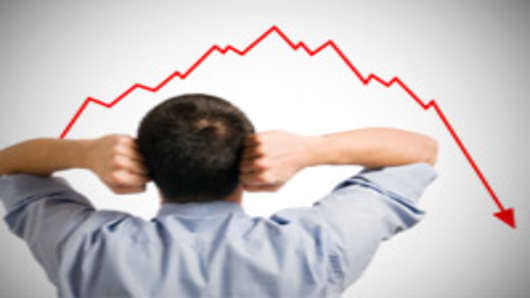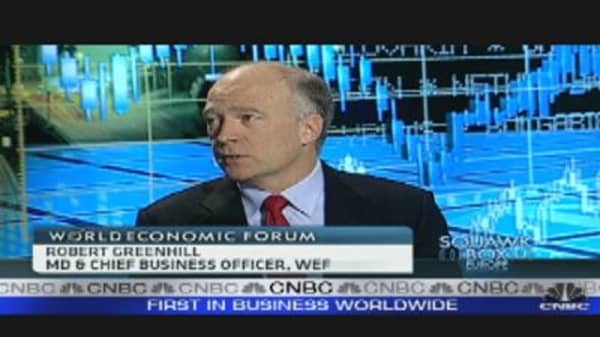Over three years of financial crisis has "drained the world’s capacity" to deal with further shocks, according to the World Economic Forum’s closely-watched Global Risks Report.
“The frequency and severity of risks to global stability have amplified, while the ability of global governance systems to deal with them has not,” the report said.
As the political and business elite prepare for five days of meetings at the World Economic Forum’s annual meeting in Davos, the message from the forum is clear.
“Twentieth century systems are failing to manage 21st century risks; we need new networked systems to identify and address global risks before they become global crises,” Robert Greenhill, Managing Director and Chief Business Officer at the World Economic Forum, said.
“The interconnectedness and complexity of issues mean that unintended consequences abound, and traditional risk response mechanisms often simply shift risk to other stakeholders or parts of society,” Greenhill said.
The report highlights three major areas of risk that will impact the world over the next decade.
It’s the Economy Daniel M.Hofmann, chief economist at Zurich Financial Services and the co-author of the report, warned that major macro-economic changes are needed.
“Current fiscal policies are unsustainable in most industrialized economies. In the absence of far-reaching structural corrections, there will be a high risk of sovereign defaults,” Hofmann said.
“Crisis-induced indebtedness has reduced the capacity to handle further shocks to critically low levels,” he added.
It’s the Black Economy
The underground economy, driven by the drugs trade, is now putting entire countries at risk, according to the 2011 Global Risks report.
“Greater numbers of failed and fragile states, increasing levels of illicit trade, organized crime and corruption form a nexus of criminal risk,” the report authors' wrote.
“In 2009, the value of illicit trade around the globe was estimated at 1.3 trillion dollars and growing. These risks, while creating huge costs for legitimate economic activities, weaken states, threaten development opportunities, undermine the rule of law and keep countries trapped in cycles of poverty and instability.”
It’s Tomorrow’s Economy
As the world’s population continues to grow, resources will come under ever greater pressure, according to the report.
“The world faces hard limits at the most basic level in terms of water, food and energy. Rising populations and consumption and climate change drive this challenge, while interconnections between these issues make response difficult,” the WEF document showed.
“Most interventions only create new and worse problems, or shift risk across the nexus. Shortages of core resources will only create more conflict between the social groups, nations and industries that need them.”





